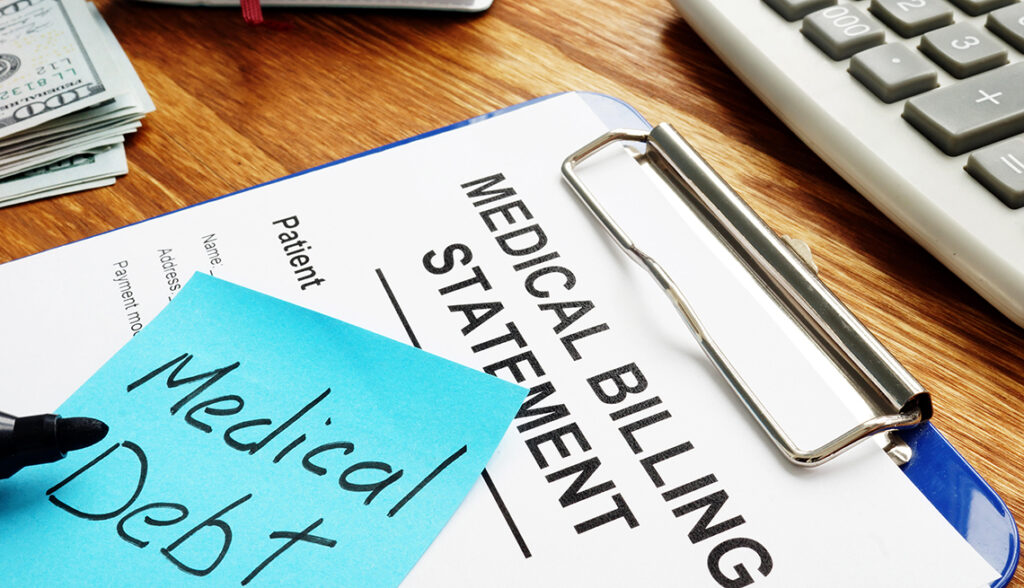In today’s world, healthcare costs are skyrocketing, and it is essential to be prepared to face the expenses that come with them. Managing healthcare expenses can be intimidating, especially when unexpected medical emergencies arise. However, with some smart planning and financial management, it is possible to manage your healthcare expenses efficiently.
This blog will explore helpful tips to help you manage your healthcare expenses effectively. By following these tips, you can take control of your healthcare expenses and make informed decisions about your health and finances.
1. Review Your Insurance Coverage

You can save significant money by choosing an insurance plan that meets your healthcare needs and provides adequate coverage. Understand what your insurance plan covers, including deductibles, co-payments, and maximum out-of-pocket expenses. If you are generally healthy, choose a plan with higher deductibles and lower monthly premiums to save on costs. If you have chronic health conditions requiring frequent doctor visits and medications, choose a plan with lower deductibles a save on costs.
2. Consult With A Healthcare Attorney
Healthcare attorneys specialize in helping patients navigate the complex world of healthcare laws and regulations, including insurance coverage, medical billing, and malpractice claims.
For example, in the case of mesothelioma, a severe medical disease caused by exposure to asbestos, mesothelioma lawyers can help you explore your legal options for pursuing compensation from the companies responsible for asbestos exposure. It can include filing a lawsuit or pursuing a settlement with the company’s insurance provider.
A healthcare attorney can also help you negotiate medical bills, deal with insurance denials, and understand your legal rights and options regarding healthcare expenses. They can work with healthcare providers to dispute charges, negotiate payment plans, and ensure you are not overcharged or billed for services.
3. Shop Around

Healthcare providers can vary widely in terms of pricing, so comparing costs from different providers is essential. If you need a medical procedure, research and compare prices from various hospitals, clinics, or specialists in your area. You can also ask your healthcare provider for a cost estimate before agreeing to a service or procedure.
4. Use Generic Drugs
Generic drugs have the same active ingredients and quality standards as the brand ones, but you can get them for a lower price. Be sure to follow your doctor’s advice and take any medications as directed, regardless of whether they are brand-name or generic. Some insurance plans may only cover generic drugs, so it’s worth discussing this option with your doctor or pharmacist to save money on your prescription medications.
5. Take Advantage Of Preventive Care

Investing in preventive care allows you to avoid expensive medical procedures and treatments later on. Preventive care includes regular checkups, screenings, and vaccinations that can help detect and prevent health problems early.
If you have a family history of heart disease, getting regular checkups and monitoring your cholesterol levels can help you catch any problems early. It will save you thousands of dollars in medical bills in the long run. Similarly, vaccinating against preventable illnesses can help avoid costly hospitalizations and treatment for those illnesses.
6. Negotiate Costs
You can ask your healthcare provider if they offer payment plans or discounts for self-pay patients. Some providers may offer discounts for patients who pay in full or on time. If you are uninsured or your insurance plan has high deductibles, you can ask your provider if they offer a discount for cash upfront or a payment plan that works within your budget.
7. Use Tax-Advantaged Accounts

Health Reimbursement Arrangements (HRAs), Health Savings Accounts (HSAs), and Flexible Spending Accounts (FSAs) offer significant tax benefits to individuals who use them.
For example, HSAs allow individuals with high-deductible health plans to contribute pre-tax dollars to an account that can be used to pay for these qualified expenses tax-free. Similarly, FSAs enable individuals to contribute pre-tax dollars to an account that can be used to pay for eligible healthcare expenses, including deductibles, co-payments, and prescription medications.
In addition to the tax benefits, these accounts can also help individuals better manage their healthcare expenses by allowing them to budget for their healthcare costs more effectively.
8. Ask About Financial Assistance
Financial assistance programs can vary in eligibility requirements, the application process, and benefits. Some programs may offer discounts on medical services, while others may provide free care or assistance with medication costs. Still, they generally offer financial relief to patients who cannot afford their medical bills.
To take advantage of these programs, patients should ask their healthcare providers about financial assistance options and eligibility criteria. Some providers may require patients to provide proof of income or financial hardship, while others may offer assistance based on a sliding scale.
9. Understand Medical Bills

Medical bills can be confusing and overwhelming, but with some basic knowledge, you can better navigate the healthcare system and avoid unexpected charges. Here are some tips to help you understand medical bills:
Always review your bills carefully to ensure the charges are accurate and reasonable. Check for errors, such as double billing or payments for services you did not receive.
If you receive a summary bill that does not provide details on the services you received, ask for an itemized bill. An itemized bill will show the specific services you received, the cost of each service, and any discounts or adjustments.
Medical billing codes can be confusing, but understanding them can help you identify the services you received and ensure you are being charged appropriately. Ask your healthcare provider or insurance company for a list of the codes used on your bills and what they mean.
Conclusion
Managing healthcare expenses can be overwhelming, but it’s possible to keep costs under control with the right tips. Some strategies to help manage healthcare expenses include taking advantage of preventive care services, negotiating medical bills, researching treatment options, considering a health savings account, and reviewing insurance policies regularly.
By being proactive and informed about healthcare costs, individuals can make smart decisions that benefit their health and finances. It’s important to prioritize health and wellness, be mindful of expenses, and seek resources to manage them.

